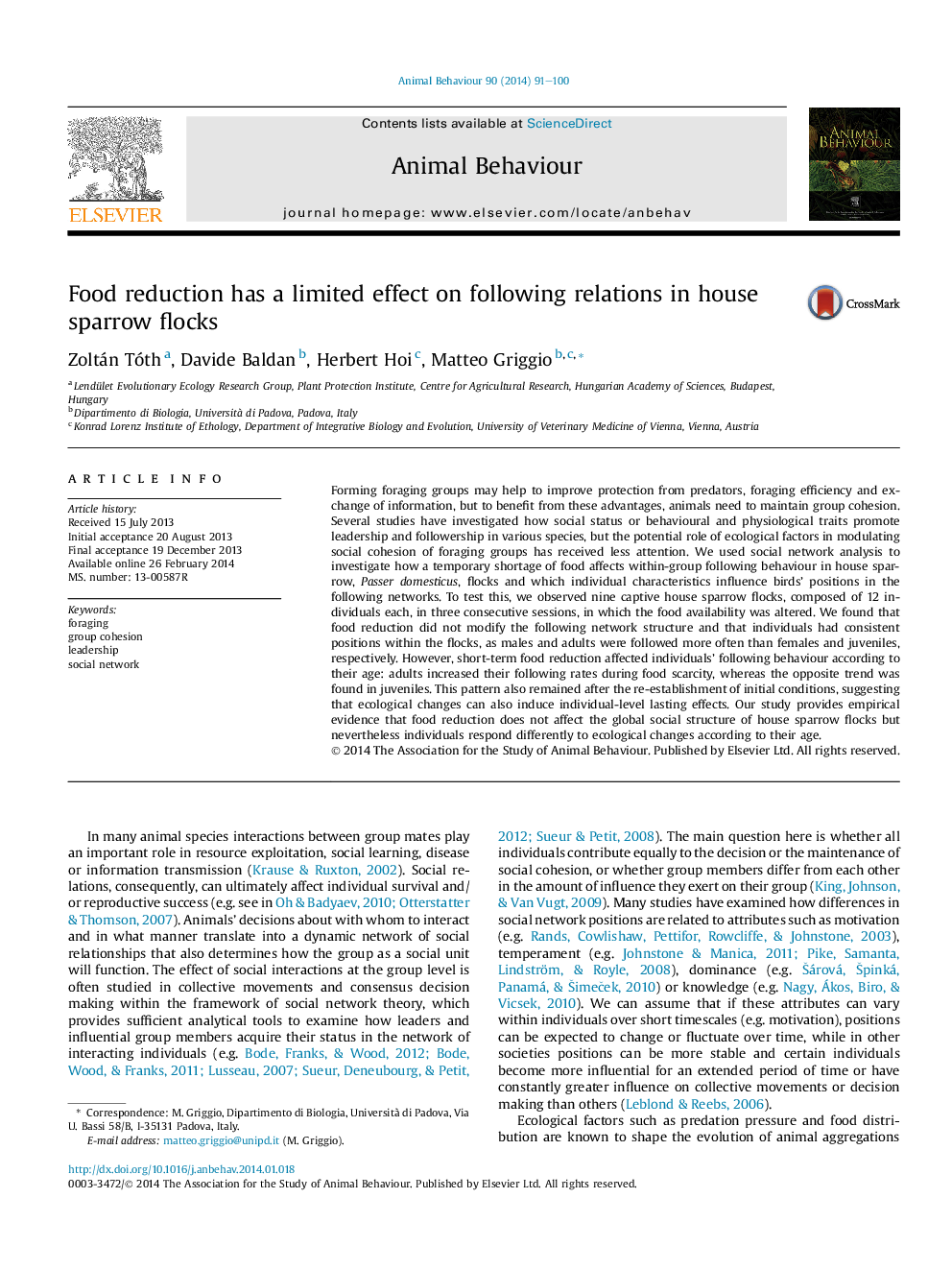| کد مقاله | کد نشریه | سال انتشار | مقاله انگلیسی | نسخه تمام متن |
|---|---|---|---|---|
| 2416381 | 1552238 | 2014 | 10 صفحه PDF | دانلود رایگان |
• We used social network analysis to see how food shortage affects following behaviour.
• We studied several captive house sparrow flocks.
• We found that food reduction did not modify the network structure.
• Adults increased their following rates during food scarcity.
• The opposite trend was found in juveniles.
• This pattern also remained after the re-establishment of initial conditions.
Forming foraging groups may help to improve protection from predators, foraging efficiency and exchange of information, but to benefit from these advantages, animals need to maintain group cohesion. Several studies have investigated how social status or behavioural and physiological traits promote leadership and followership in various species, but the potential role of ecological factors in modulating social cohesion of foraging groups has received less attention. We used social network analysis to investigate how a temporary shortage of food affects within-group following behaviour in house sparrow, Passer domesticus, flocks and which individual characteristics influence birds' positions in the following networks. To test this, we observed nine captive house sparrow flocks, composed of 12 individuals each, in three consecutive sessions, in which the food availability was altered. We found that food reduction did not modify the following network structure and that individuals had consistent positions within the flocks, as males and adults were followed more often than females and juveniles, respectively. However, short-term food reduction affected individuals' following behaviour according to their age: adults increased their following rates during food scarcity, whereas the opposite trend was found in juveniles. This pattern also remained after the re-establishment of initial conditions, suggesting that ecological changes can also induce individual-level lasting effects. Our study provides empirical evidence that food reduction does not affect the global social structure of house sparrow flocks but nevertheless individuals respond differently to ecological changes according to their age.
Journal: Animal Behaviour - Volume 90, April 2014, Pages 91–100
